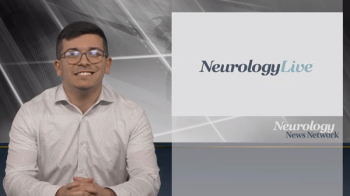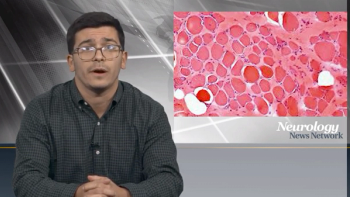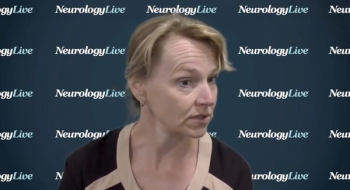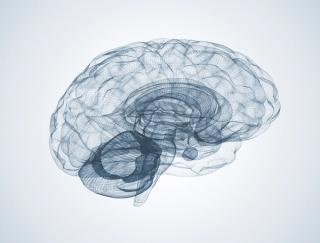
Dementia and Alzheimer Disease
Latest News

Latest Videos

CME Content
More News

Stress coping abilities may have a direct impact on the early accumulation of tau pathology.

Additional analysis of secondary endpoints and biomarkers are expected to be presented at the Advances in Alzheimer’s and Parkinson’s Therapies (AAT-AD/PD) Focus Meeting in April 2020.

The lead author of a recent publication from the Memory and Aging Project discussed the data and what impact flavonol intake might have on the risk of developing Alzheimer disease dementia.

The drug was previously indicated for the treatment of insomnia characterized by difficulties with sleep onset and/or sleep maintenance.

The software, developed by Qynapse, provides analysis of brain MRI markers in diseases such as Alzheimer disease, Parkinson disease, and multiple sclerosis.

The lead author of a recent publication from the Memory and Aging Project discussed the data and what impact flavonol intake might have on the risk of developing Alzheimer disease dementia.

Join NeurologyLive and the Women Neurologists Group on Twitter to celebrate women in neurology on National Women Physicians Day.

Neurology News Network for the week ending February 1, 2020.

Data from the Memory and Aging Project suggests that dietary intake of flavonols, a type of phytochemical often found in plant pigment, is significantly linked to a lower risk of Alzheimer disease dementia.

The investigational Alzheimer disease treatment from Biogen will be re-administered to patients who were previously enrolled in aducanumab trials as they prepare to submit for FDA approval.

The drug proved effective in extending total sleep time over a 4-week study period, with minimal adverse events observed.

The vice president and chief medical officer of the Neurology Business Group at Eisai discussed the company's decision to continue efforts on amyloid therapy despite prior setbacks.

Catch up on some of our most popular video interviews with leaders in the field, including discussions with Imad Najm, MD, James Leverenz, MD, Richard Isaacson, MD, and more.

Neurology News Network for the week ending December 21, 2019.

Compared to counterparts who did not exercise, those with cognitive impairments with no dementia risk factors improved in executive functioning when they exercised consistently over 6 months.

Although there are gaps in knowledge, investigators see potential in telemedicine for other neurologic disorders beyond stroke.

The data presentation from the phase 3 EMERGE and ENGAGE clinical trials suggest that aducanumab may result in disease-modifying effects, slowing clinical decline in those with early Alzheimer disease. Biogen expects to submit a BLA to the FDA for approval in early 2020.

The director emeritus of the Cleveland Clinic Lou Ruvo Center for Brain Health discussed the significance of the HARMONY study findings and what they mean for the future treatment of dementia-related psychosis.

The phase 1/2 trial seeks to will assess the safety and efficacy of mesenchymal stem cells for the treatment of Alzheimer disease.

James Leverenz, MD, director of the Lou Ruvo Center for Brain Health at Cleveland Clinic, sat down to discuss the challenges faced in diagnosing Lewy body dementia.

A study comparing 2 doses of minocycline falls short as the drug failed to slow progression of cognitive or functional decline in people with AD.

Neurology News Network for the week ending November 16, 2019.

Alireza Atri, MD, PhD, medical director of the Banner Sun Health Research Institute, spoke about the importance of open-ended cognitive screening, and the value that early detection and intervention can bring to the table.

The associate professor at Leiden University Medical Center detailed how palliative care can be used more effectively in patients with dementia.

EIP Pharma also announced results from the REVERSE-SD study that examined neflamapimod in early stage Alzheimer disease.














